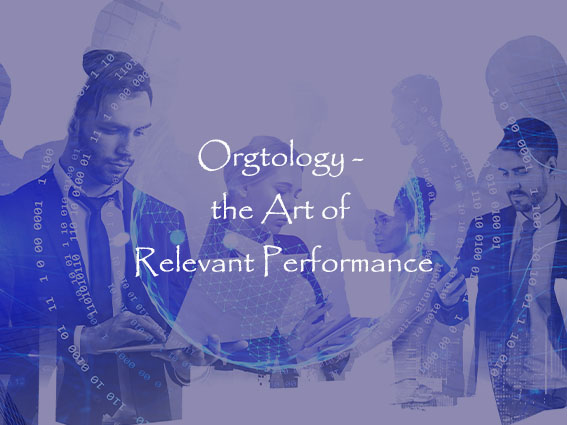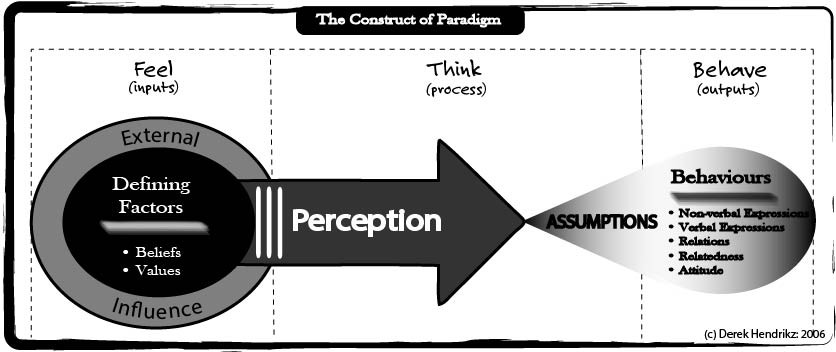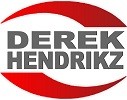The Orgtology Blog
Sameness and Difference – the core of Workplace Diversity and Inclusion – an Orgtology perspective
I am Caucasian, male, 52 years old, and speak with an Afrikaans accent. It is my fixed identity. Physically I cannot be anything else than that. Yet mentally I can be an incredible variety of that. My body is an algorithm. It restricts me. My mind is abstract. It frees me. Jointly, they become an expression of who and what I am.
As humans we express our existence through the relationship between body and mind. In so, neither our physical nor our meta-physical identities can create unity on their own. They must work together to do so. It is only through duality that they can achieve a singularity.
Oneness is an expression. It is not the result of having the same physical features. Of course, it is not possible to separate physical features from expression. It is part thereof, but not the entire story. For a collective to exist, there must be a meeting of minds, and such will always have something to do with a physical manifestation.
Any threat to how we express ourselves, will threaten the way in which we exist. Yet, these threats will keep our perceptions alive. In fact, such threats will mostly raise the intensity of an expression. This is quite clear with the current USA republican / democrat conflict. It is not as if any argument from one side subsides the other side. The opposite is true. In so, that which threatens the way in which we exist is also the reason for why we exist. It is a "Catch 22" situation. Growth and change are not possible without paradox.
"We experience beauty because of ugliness. We experience good as good only because there is evil. Similarly, existence and non-existence give rise to one another. Difficult and easy, long, and short, High and low, before and after, the music and the silence; all cannot exist without the other. They are two sides of the same coin."
Lao Tzu
The same goes for any organisation who wants a diverse workforce to send out a unified message. It needs difference to fuel its creative and innovative abilities. At the same time, it needs sameness to be efficient and effective.
Diversity gives freedom, whilst unity restricts. As with an individual, the organisation must find balance between freedom and restriction. The question then, what restricts and what gives freedom to Org?
The basic assumption on unity through diversity…
Sameness drives unity whilst difference creates conflict. An entity needs both to exist because unity is an expression that evolves through conflict.
We express our unity through purpose whilst we express our difference through intent. This is the basis of orgtology theory. E.g., all boxers have the same purpose. It is what unites them. Yet, the intent of Floyd Mayweather, to become the greatest boxer of all time, is what has set him apart. The industry will unify those who work within. Yet, every organisation within an industry strives for uniqueness. Org uses employee uniqueness to contribute to the organisational dream.
This basic assumption teaches that we endorse our sameness through difference. From an orgtology view, unity will drive performance, whilst conflict will bring change. I.e., Unity creates efficiency, which achieves targets. In turn, this drives favourable outcomes, which is a primary indicator of performance. Difference creates conflict, which brings change, which keeps us relevant. The more relevant our organisation is, the better it is for us. In so, we find unity through our diversity.
What restricts and what gives freedom?
As an Orgtologist, I practice the principles of orgtology. Orgtology is the science of organisation. This means that an Orgtologist must find scientific ways to understand and remedy organisational problems. That is my purpose. It is what restricts me. This is not an imposed restriction. It's what I chose to do.
My intent is what I want to make of my purpose. It is what gives me freedom. Do I want to be a known, a specialised, and/or an ad hoc practicing Orgtologist? Intent ignites vision, sparks creativity, and drives innovation.
In organisations, purpose restricts whilst intent gives freedom. This is the foundation of organisational diversity. Growth is a result of difference whilst sameness gives stability. Finding balance is how we create a happy and meaningful workplace.
"What makes us different, and in which ways are we the same?
What incites our conflicts, for there are so many to blame...
I want to be me yet cannot survive without we...
But what then is left of me if I must crucify myself unto a collective we?
Thus, the question remains - who am I and who are we?
Hendrikz: 2013
The link between orgtology and workplace diversity.
Orgtology studies workplace dynamics, workflow, intelligence, results, and leadership through a basic hypothesis, called Hypothesis 2x. In this hypothesis the "2" shows a duality between something mathematical and something abstract. E.g., an employee brings knowledge and skill to the workplace. This is something measurable and something that we can precisely direct. At the same time, such employee also brings emotion, aptitude, thoughts, values, beliefs, and drive to the organisation. These are the abstract things. The "x" in hypothesis 2x shows a study of the abstract part of an organisation. We call this the "X-Factor".
In organisations operations will bring order whilst strategy will induce chaos. Your organisation needs both to survive. One cannot exist without the other. Knowledge and skill will drive efficiency whilst the X-Factor will drive creativity, innovation, and vision. The X-Factor is where we gain power through difference. It is why workplace diversity matters.
How do we embrace the X-Factor?
To make the workplace meaningful and fun, we must find unity through diversity. In so, we must embrace the X-Factor.
This is a complex process. In one part, we must help employees to perform within the boundaries of purpose. At the same time, we must motivate employees to be relevant to our intent. We thus want relevant and performing employees.
To perform is a matter of knowing what to do and how to do it. Relevance is a matter of using one's difference to help the organisation achieve its dreams. In so, there is a strong link between relevance and diversity.
Diversity conversations and sensitising must therefore help employees to express themselves in a relevant way. To do so, we work with three areas of diversity. I discuss each below.
Intelligence as medium to create a culture of inclusion.
Intelligence is the only meaningful thing that humans can bring to an organisation. With this, we do not propose to know what intelligence is. The reality is that no one does. We do not even have an idea of where it is. Increasingly, evidence shows that intelligence might be more collective than individual. Whatever the case, it is key that employees know how their uniqueness will affect the organisation. We regard employee uniqueness as intelligence because it is hard to replicate. This understanding is key to workplace inclusion.
Some people must work on TV Towers that stand 630m above ground. To do that they must be able to take several physical strains. It is thus important to the organisation that they are physically intelligent. The organisation also needs accountants, lawyers, engineers, etc. In so, cognitive intelligence is important. Yet, without getting along or being able to negotiate, the organisation will suffer. In so, emotional intelligence is important. We also need loads of creativity, making creative intelligence important. Further to that, the organisation needs leaders who can craft the future. In so, contextual intelligence is key. We also need leaders to be just and not corrupt. This means that their values must outweigh their needs, which is a trait of being spiritually intelligent.
Intelligence is not one thing. Every person is unique, and therefore holds something that others do not have. That is your intelligence. If your uniqueness will help the organisation to ensure its purpose and achieve its intent, then you have intelligence that the organisation needs.
Paradigm as medium to create a culture of inclusion.
A person grows up within a family who lives in a community. These systems endorse values and beliefs on us. In turn they create perceptions, which drive assumptions. All this ends in behaviour. Ubuntu, an isiZulu phrase, best describes this process. Translated, it means, "I am a person because of people".
At the root of paradigm are beliefs and values. Jointly they drive all behaviour. In so, we learn that it is not possible to change the behaviour of another without, in some way, altering a belief and value system.
A belief is a non-negotiable truth, whilst a value is the criteria that we use to evaluate the people and things around us. For this reason, a strong company value system is so important. It is the bedrock of workplace diversity and inclusion. Values describe our beliefs and hold us together. It gives us the chance to decide whether we want to be part of an organisation or not.
A paradigm is the window through which we see the world. Where organisational values and beliefs match those of an employee, it's a happy match. If the organisational culture allows me to be me, without sacrificing the collective "we", then creativity will be abundant.
The freedom that individuality brings, must always be in balance with the collective values we hold. Whilst one pushes boundaries, the other holds things together. When we align our behaviour with our values, we act in integrity. Thus, where Org allows individuality beyond its values, it becomes corrupt.
Identity as medium to create a culture of inclusion.
Identity is what holds us together. To organisations, brand is its most unbreakable asset. It is also the most expensive one. I.e., one would pay more for the name "Google" than one would for all its assets. It is the only thing that no other entity can copy. Brand holds the identity of many individuals and entities. In so, Org is an identity made of a myriad of identities.
Humans carry with them a fixed identity. These are the things that we cannot change. Our race, age, height, ethnicity, etc. Then there are our collective identities. These are the workplaces, clubs, societies, friends, and associates we join. Further to that, we also have hidden identities. These are the things that we share with very few because we don't want everyone to know. And we bring all this to the workplace.
It is key to grasp organisational identity in relation to the individual identities within. Identity will ultimately decide who we include and who we do not. Through linking corporate and individual identities, we link sameness to difference and contrarywise.
Conclusion.
Sameness gives us strength to perform. Difference helps us to change things. In so diversity keeps us relevant. Steve Jobs described the power to be different best…
"Here's to the crazy ones, the misfits, the rebels, the troublemakers, the round pegs in the square holes ... the ones who see things differently -- they're not fond of rules, and they have no respect for the status quo. ... You can quote them, disagree with them, glorify, or vilify them, but the only thing you can't do is ignore them because they change things. ... They push humanity forward, and while some may see them as the crazy ones, we see genius, because the people who are crazy enough to think that they can change the world, are the ones who do."
Steve Jobs: 1997
Organisations need sameness to survive and difference to thrive. It will find its sameness in purpose whilst difference will drive its intent. Jointly, purpose and intent encapsulate the organisation as one collective. Those who buy into organisational purpose and intent will find sameness beyond their difference.
For diversity and inclusion interventions to succeed, it must follow a holistic approach. To achieve this, we must work with individuality within the boundaries of organisational purpose, intent, and values. We cannot understand this equilibrium in isolation. Sameness and difference are equally important. They are the core of workplace diversity and inclusion.

Join the Orgtologist Certification Program (OCP) - Empowering Executive Teams Worldwide
Copyright
© Derek Hendrikz: 2021-01-25
When you subscribe to the blog, we will send you an e-mail when there are new updates on the site so you wouldn't miss them.



